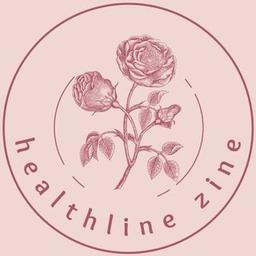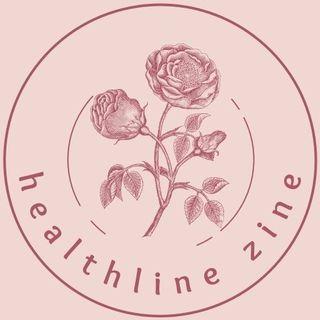If you could sum up your magazine's vibe in six words or less, what would they be?
all the feels ;)
Editors notoriously don’t get paid much (if at all) and tend to take a lot of flack. So, why do it? Is there a moment you can remember in your time with your magazine where you thought: ‘this, this is why I do it’?
We've been lucky to have received powerful submissions. Through these, I've learned about many peoples' stories, and that's what this is about for me. As much as I love a good poem or drawing, it's the people and their stories I do this for, and the artists out there haven't let us down.
Who are four or five writers you see as typifying the kind of work you look for in your magazine?
In terms of theme, style, and this general idea of facing the world, being hurt, and rising from that: Audre Lorde, Alison Bechdel, Arundhati Roy, Topaz Winters, and Andrea Gibson stick out to me. I want healthline to give contributors a space to be themselves and talk about what affects them as individuals.
Are there any common mistakes writers make when they submit to your magazine?
We offer poets the option to leave notes with poems. Since healthline wants to get to know the writer through the work, these notes mean a lot and round out pieces. Although some poems work better without explanation, I'd like to see more poets take advantage of the author's note regardless.
The lit mag scene is massive. What did you want to bring to the community with your magazines that is different from what others are offering?
I like that healthline is very personal. We aim to see contributors in the context of what they tell us about themselves rather than just looking at work independently. We won't say no to work submitted without the contributor's story, but an author's note or detailed caption is a huge bonus.
What is your ideal cover letter to see for a submission? Simple and sweet? Professional? A few kind words peppered in?
I love what you have in your "How to Write a Cover Letter" blog post as a standard for most magazines. However, healthline does not mind contributors including relevant background to their pieces. If you base your work on something in the world or your life, we'd love to hear about it. (Or maybe I'm just a nosy person. Who knows?)
Is there a specific kind of project you haven’t seen in your current submissions that you’d love to see come in?
In terms of writing, we get a lot of personal essays and poetry, which I'm happy about because that's my jam, but I'd love to see more fiction pieces and stories.
Are there magazines you see as literary siblings, mentors, aspirations, besties, etc.?
JUVEN and Half Mystic are the ultimate aspirations! The staff at JUVEN and Outlander Zine have been a tremendous help in getting this project off the ground.
I could name a hundred other magazines I love. Instead, I'm going to plug our Twitter (@healthline_zine), where we frequently shout out our awesome literary siblings.
What do you see as a deal-breaker in a submission, regardless of the quality of the writing? (For example, poor formatting, vulgarity, etc.)
Insensitivity is the main deal breaker. If we love a piece with a glaring issue, our editors will reach out and offer revisions. But healthline is supposed to be a safe, supportive, and understanding space, so work meant to offend a group is a big no-no.
Is there a part of the submissions process that writers tend to fret over that isn't all that important?
When I first started submitting, I put too much time into my cover letters. If you know the magazine well (I'd hope so if you're submitting there!), it shouldn't be a big deal. Just name a piece you like or say something nice about their vibe, and move on.
If you could bring one writer back to life to write a story for your magazine, who would it be, and why?
Audre Lorde 100%. Not only because I'm obsessed with her writing but also because we want voices that challenge us, inspire us, and make us better people for having heard them.
What is a recent piece published in your magazine that you think would make a great short film?
A lot of the work we get is raw, reflective and moving, so I can see a few upcoming pieces as the sort of films that make you cry.
Many writers struggle to decide what to say about themselves in a bio. What is an example, either made up or from a writer you've published, of the ideal literary bio?
Instead of answering the question, I'm going to say "ideal bio" depends. If you're a writer or artist with publications, education, and work experience under your belt, then include those so readers can find more of your work. If you're young or starting out, plug your website/socials and let readers get to know your hobbies and interests. Either way, have fun and make sure it represents you as an artist/writer!
There are the well-worn (for good reason) pieces of advice like "read submissions guidelines" and "read the journal you're submitting to," but do you have any other advice for prospective writers looking to get their work published?
For young artists in particular, don't overthink a rejection. Also, don't listen to every single piece of feedback ever. Learn to let things roll of your shoulders.
If you could add one question to this interview, what would it be, and how would you answer it?
If I could add one question to this interview, it would be "Should you submit to healthline zine?" And the answer would be, "Yes. Right now. We want to see your work."
View healthline zine on Chill Subs

